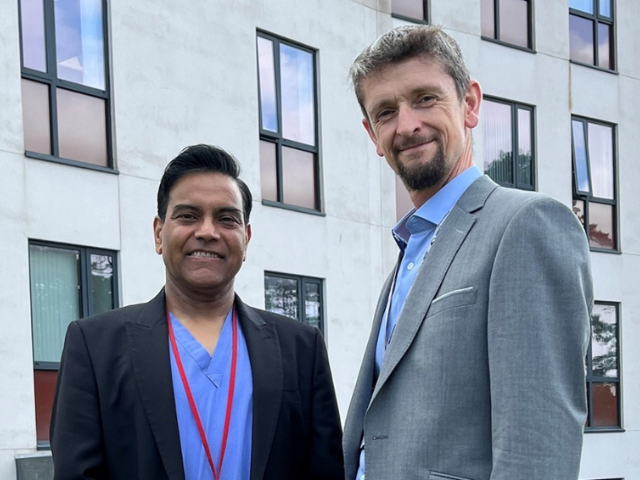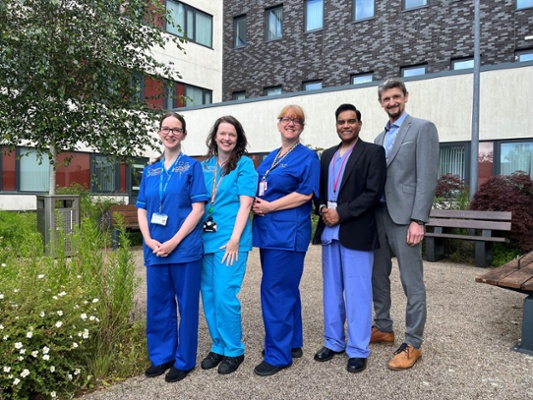
Research study aims to detect lung cancer earlier via simple test
31 July
Researchers funded by Health and Care Research Wales are supporting a potentially ‘hugely significant’ study aimed at earlier detection and treatment of lung cancer through a simple blood test.
The team from Swansea Bay University Health Board and Swansea University is collaborating on a specific technique which aims to detect the disease more quickly, and prevent patients from undergoing invasive and unpleasant tests.
The study is being led by Professors Dean Harris and Ira Goldsmith, and governed by the health board’s research and development department with support from research delivery nurses, which are funded by Health and Care Research Wales.
More than 60 patients who have had lung nodules detected have volunteered to be part of the research by giving a simple blood test. Those results are now being analysed as part of the study.
Professor Harris said: “The outcome of this study could be hugely significant for our patients and have a massive impact on their lives.
“Early diagnosis when a suspicious nodule is detected in the imaging process is vital for the best outcome of our patients.
“Our study is hoping to detect lung cancer quicker from a blood test which can then lead to treatment getting underway sooner.”
His latest study, which is expected to run until October, uses a technique called Raman spectroscopy to detect changes in blood samples related to lung cancer.
If successful, it is expected to have a big impact on the diagnosis of lung cancer at a far earlier stage.
The study has been made possible by funding of £45,000 by the Medical Research Council Impact Acceleration Account, which provides funding to speed up the transition from discovery research to delivering it as part of healthcare.
Professor Harris said: “Current screening tests involve CT scans which can’t always tell if nodules are cancerous, so alternative tests are needed.
“It’s very exciting to be leading on this study, particularly as it could affect so many people in our community.”
Dr Nicola Williams, Director of Support and Delivery at Health and Care Research Wales, added: “Lung cancer is the third most common cancer in the UK, and through our dedicated research nurses and the wider research and development department at Swansea Bay University Health Board, we are proud to be able to support such innovative work with the potential to transform lives.”
